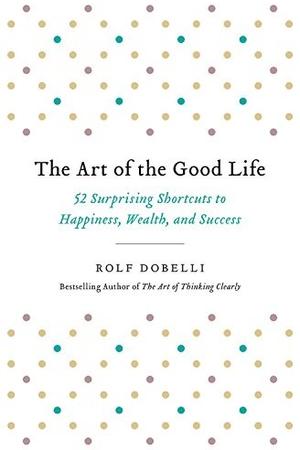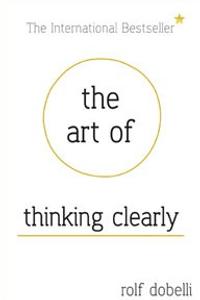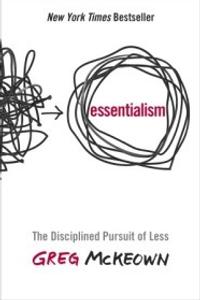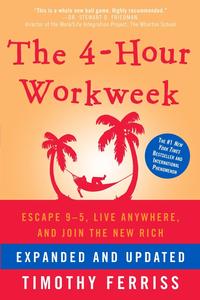
The Art of the Good Life by Rolf Dobelli: Summary & Notes
by Rolf Dobelli
In One Sentence
Fifty-two practical mental tools for a good life—from Stoicism to behavioral economics, these shortcuts help you think more clearly and live more wisely.
Key Takeaways
- Mental accounting: keep separate budgets for different goals
- The circle of competence: know what you know and stay inside it
- The Secretary Problem: optimal stopping rules for decisions
- Sturgeon's Law: 90% of everything is crap—be selective
- The focusing illusion: nothing is as important as you think while thinking about it
- Negative visualization: imagine losing what you have to appreciate it
Summary
Rolf Dobelli, who also wrote The Art of Thinking Clearly, lays out 52 rules for a good life. The rules are adopted from three primary sources: psychology research, Stoicism, and investment literature, particularly that of Charlie Munger and Warren Buffett. Good book with important rules. Some may be familiar for those who are already well-read on the primary sources, but a worthwhile compilation nonetheless. If you are unfamiliar with the primary research, both this and The Art of Thinking Clearly are a great introduction.
Who Should Read This Book
- Anyone wanting practical life wisdom
- Fans of mental models and clear thinking
- Readers who prefer short chapters with actionable advice
- Those who enjoyed The Art of Thinking Clearly
FAQ
What is The Art of the Good Life about?
It's 52 short chapters, each presenting a mental tool for better living. Topics range from decision-making to happiness to productivity. It's practical philosophy—less theory, more application.
📖 Chapter-by-Chapter Breakdown
Click to expand the full detailed notes for every chapter →
📖 Chapter-by-Chapter Breakdown
Click to expand the full detailed notes for every chapter →
Notes
- We overestimate set-up, and underestimate the power of course correction. Plan on constant adjustment in any of your endeavours, including love.
- Flexibility is a trap. Choose pledges which you stand by no matter what. Inflexibility can be a great strategy to achieve long-term goals.
- Find a partner to help you analyze yourself.
- When you make decisions, record all details, and use this to improve your future decisions (black-box thinking).
- Counterproductivity: if a thing doesn’t contribute clear value, you can do without. Especially technology.
- Eliminate the downside in your life. Focus on not making mistakes. Focus on eliminating the negative.
- You haven’t earned anything. Most of your life is due to luck.
- Take feelings seriously - just not your own. Be skeptical of your inner voice. (Introspection illusion)
- Restrict your inner disclosure/authenticity to keeping your promises and acting according to your principles. Keep the rest to yourself.
- Decide in five seconds. If it’s not a “Hell yes!” Then it should be a no.
- Nothing in life is as important as you think it is. Moving to the Caribbean won’t make you happier. More money won’t make you happier (to an extent). (Focusing illusion)
- Buy less and experience more.
- Keep your fixed costs low until you have “fuck-you money” - enough money to retire at any time. Don’t react to minor fluctuations in your income or assets. Don’t compare yourself to the wealthy. Live modestly.
- Radically focus yourself on your circle of competence.
- The more peaceful the life, the more productive. Play the long game.
- Build on the skills you already have.
- Stop worrying about your reputation and what others think. Focus on internal validation.
- Avoid situations in which you have to change other people. You can’t. You can change yourself, but not others.
- You need goals to be satisfied with life. But leave them a little vague. Unrealistic goals are killjoys.
- There is a difference between your remembering self and your experiencing self. We tend to overvalue brief, intense pleasures compared to lasting, tranquil joys. Balance both.
- Make the most of your present experience, but don’t neglect long-term plans.
- Aim to see yourself realistically. Ask friends or your partner. Keep a diary to see your evolution over time.
- Accept that life isn’t perfect, and don’t allow yourself self-pity.
- Maintain a balance between pleasure and meaning. Pleasure has decreasing marginal utility, and suffering endlessly is unhealthy.
- Maintain a “circle of dignity”, inside which you keep values that are inviolable and non-negotiable. Keep it small, and commit deeply to those things.
- Aim to decrease worry about the things you cannot control. Journal on your worries daily, to let them escape your mind. Take out insurance for the critical things. Distract yourself with focus on fulfilling work.
- Express fewer opinions, and get comfortable saying “I don’t have an opinion on this” or “I don’t know enough about this to form an opinion”. When you do want to form one, take your time, write about it, and get external viewpoints. Try to poke holes in it, and see if it holds up.
- Everything you own, value and love is ephemeral. Get used to the idea and accept it. Only your thoughts cannot be taken from you.
- Stop comparing yourself to others. To do this, avoid social media, choose a place to live where you are local elite, and choose your peer group wisely.
- Try to avoid difficulties rather than solving them. Spend a few minutes each week conducting a “pre-mortem”, and considering all the catastrophic risks in your life.
- You are not responsible for the state of the world. Restrict your news consumption. Donate money, not time. (Volunteer’s folly)
- Focus, time and money are our three most important resources. Make sure to guard your time and focus as rigorously as you guard your money.
- Read less, but twice. Devour as many books as possible when young, and then ruthlessly cut.
- Avoid ideologies and dogmas at all costs. They are guaranteed to be wrong. Three marks of dogma: a) they explain everything, b) they’re irrefutable, and c) they’re obscure.
- Be especially careful about defending a dogmatic position in public - it imprints it on your brain.
- An exercise to remind you you’re happy: close your eyes and imagine all sorts of misfortunes - accidents, lost limbs, lost loved ones - then open your eyes, and embrace what you have.
- The best ideas come while you’re writing, not while thinking. Act to figure things out. (Introspection illusion)
- There are rarely great men. Luck plays a large role. Do not expect that you can be one yourself.
- Focus on making a difference in your own life, and don’t believe too much in your own self-importance.
- Accept unhappiness and misfortune with stoicism and calm. The world is neither just not unjust. It just is.
- You must specialize to become the best in the world at what you do. General knowledge is only useful as a hobby.
- Get to know outsiders, but don’t become one. There are benefits to being part of the establishment. Outsiders, however, tend to be quicker and more impactful.
- Seek variety in all things when you are young. You want a large sample size. As you age, you can then become highly selective.
- Organize thoughts between necessities, goals and expectations. Unrealistic expectations are huge killjoys, so manage your expectations.
- Ninety percent of everything sucks. Keep this rule in mind, particularly for consumption. You don’t need to listen, watch or read most things. If you’re not sure? It sucks.
- Stay humble. Self-importance requires energy, makes it easier to fall for doing things to look good rather than achieve a goal, and you’ll make enemies.
- To be successful is to be imperturbable, regardless of your situation.
- Focus exclusively on the things we can influence, and block out everything else.



